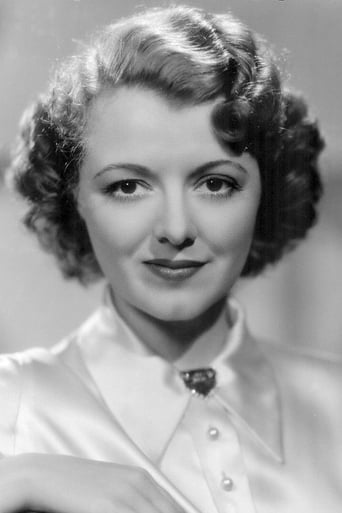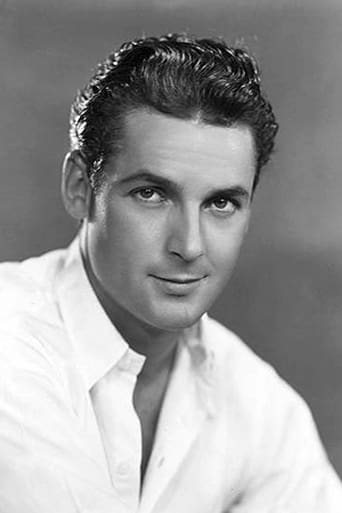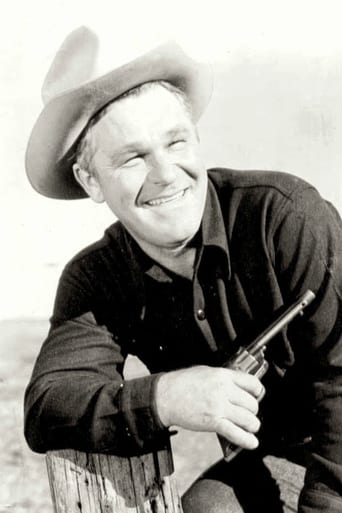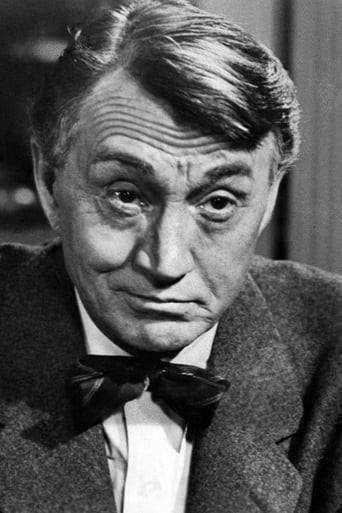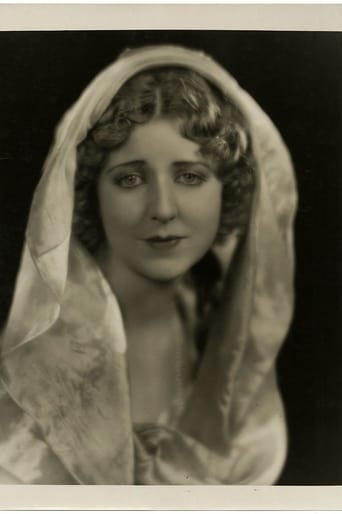VividSimon
Simply Perfect
Vashirdfel
Simply A Masterpiece
Claysaba
Excellent, Without a doubt!!
Fleur
Actress is magnificent and exudes a hypnotic screen presence in this affecting drama.
MartinHafer
I noticed that one reviewer referred to this as a 'perfect film'. Well, there are some serious problems with the plot towards the very end that, to me, make it less than perfect. But, aside from this, the film abounds with charm and is among the better silents I have seen--and I've seen a lot.A couple notes before I go on with the review. First, while this film originally was a part-talking picture with sound effects, the sound has been lost. However, I don't think this was a bad thing, as many such hybrid films aren't that great due to poor sound and integration of this. And, frankly, had you just assumed it was always a silent, you'd never notice the difference thanks to the excellent restoration. Second, if you get the film from Netflix, you'll find that their summary of the film's plot is very wrong.The film begins in a small town just before the US gets directly involved in WWI. Charles Farrell is a nice guy who decides to enlist. But, before he does this, he has a run-in with a tom-boyish girl (Janet Gaynor). There is no hint of love on either of their parts and Gaynor appears to be way too young anyway.In the war, Farrell is badly injured and his legs are paralyzed. He returns home after two years and is relatively upbeat considering everything--but he's also quite lonely. Gaynor begins to visit him and he assumes she's just a girl. But, slowly they both help each other--he gets the needed companionship and he cleans her up and reveals her to be a pretty young lady--a lady of almost 18. At this point, it's obvious both are starting to fall in love, but he's afraid to allow his feelings to show, as he sees himself as a cripple.Later, a horrible person (Guinn Williams) returns to town from the war--the same guy who may have contributed to Farrell's injury and the same guy who has no compunction about getting a girl to sleep with him by promising to marry them! When Williams starts to show the now prettified Gaynor attentions, Farrell cannot sit back in his wheelchair and acts. Now this action on Farrell's part was fun to watch but 100% ridiculous--no man can make a recovery THAT fast! His hopping out of his wheelchair and going on crutches for the first time--and in the snow--is ridiculous. Yes, it made for a fun finale...but one that makes no logical sense. It's a shame, actually, as up until then it WAS the perfect film. Still, the ending does not ruin the film and is well worth seeing even with its flaws.
lugonian
LUCKY STAR (Fox, 1929), directed by Frank Borzage, follows the familiar pattern of sentimental love stories most associated with director and his young romantic team of Janet Gaynor and Charles Farrell. For their third screen venture together, following the success of SEVENTH HEAVEN (1927) and STREET ANGEL (1928), Borzage works wonders with them again in the story based on Tristram Tupper's "Three Episodes in the Life of Timothy Osborn" by which Farrell's character dominates the screen, but whenever together with Gaynor, they're quite equivalent. LUCKY STAR seems to be an odd title for the selected story in question since it's not one that takes place in Hollywood as did Gaynor's much latter success of A STAR IS BORN (1937). Regardless of what it's titled, as Gaynor's character would frequently say, "that's gran." The scenario takes place in a rural setting on a farm where the widowed "Ma" Tucker (Hedwig Reicher)raises her four yungins, the eldest being Mary (Janet Gaynor). After driving her horse and buggy to town selling drinking items to electrical linemen for a nickel, she attracts the attention of Timothy Osborn (Charles Farrell) working on top of the telephone pole. Trying to cheat Martin Wrenn (Guinn Williams), the foreman, by acquiring an extra nickel from him with the indication she wasn't paid, Timothy comes to the girl's defense which starts a fight between him and Wrenn on top of the pole. The fight is interrupted with the news that war has been declared. Before Timothy enlists with Wrenn, he gives Mary a spanking for hiding the nickel thrown to her by his foreman. After two years in France at the war front, Wrenn returns home from the Army still retaining his sergeant's uniform while Timothy, having met with serious accident, is wheelchair bound, living alone in his cottage fixing broken things to keep busy. Still remembering the spanking, Mary (now 18) throws a stone through Timothy's window, but after meeting again, they soon become the best of friends, with Timothy affectionately giving Mary the pet name of "Baa Baa." When forbidden by her mother to have anything to do with the crippled Timothy, Mary passes Wrenn off as the escort who walked her home from the barn dance. Taking an immediate liking to Wrenn, Mrs. Tucker sees a great opportunity for a better lifestyle for all by arranging for Mary to marry Wrenn, regardless of her true love for Timothy.With all the elements of an early D.W. Griffith rural melodrama, LUCKY STAR rightfully belongs to Borzage, through fine visuals and the re-inventing of certain aspects that played so well with SEVENTH HEAVEN. The World War is worked into the plot once again, but to a limited degree. However, poor Gaynor plays an abused urchin, substituting the whipping from her older sister to facial slaps from her oppressed mother. The one who gathers more sympathy turns out to be Timothy (Farrell), especially during the film's second portion as a handicapped war veteran rather. As much as Gaynor gathers much attention with her sympathetic charm and fragile round face, this time Borzage gives Farrell the opportunity with crucial scenes where, after hugging Mary, his facial expression, telling more than actual words, who, at that very moment, comes to realize how much he loves her; along with Timothy's struggling attempt to walk again by holding on to his crutches and falling off from them. Another scene worth mentioning, played more for laughs than tears, has Timothy washings Mary's hair with a dozen eggs, resulting to Mary's hair resembling that of Little Orphan Annie's. Scenes involving Farrell and Williams starts off in humorous fashion between two men as friends one moment and fist fighting the next. Their sort of friendship comes to a halt as Wrenn interferes with Timothy's romance. Other members of the cast include Paul Fix (Joe); Gloria Grey (Flora Smith); and Hector V. Sarno ("Pop" Fry).Released at a time when talkies were dominant over silents, a few lines of spoken dialog were inserted into the story between the two lucky stars during its initial theatrical run. LUCKY STAR, which had been out of circulation since its initial release, was thought to be among the many missing from the silent era. However, the film was finally discovered, with talking sequences no longer available, restored by the Netherlands Film Museum, and unveiled in 1991, notably at the Telluride Film Festival and the Museum of Fine Arts with piano accompaniment by Bob Winter, and other revival movie houses before cable television broadcast on Turner Classic Movies (TCM premiere: October 9, 2012).Never distributed on home video, a long awaited release onto DVD became a reality in 2008 as part of the Frank Borzage collection for 20th Century Fox Home Entertainment. The print not only contains newly inserted inter-titles, but a new but somewhat unsatisfactory musical score composed and conduced by Christopher Caliendo, making one long for recovery of the lost Movietone soundtrack that accompanied the film back in 1929. The rediscovery of LUCKY STAR, overall, gives film scholars and historians a rare opportunity viewing Gaynor and Farrell at their prime, thanks to the fine direction of Frank Borzage. (***)
evanston_dad
This was my first exposure to Janet Gaynor, and I fell in love with her. She plays a poor, ragamuffin country girl who begins a timid romance with a wheelchair-bound WWI veteran (Charles Farrell), against the stern wishes of her mother, who wants her to marry instead a swaggering bully. Director Frank Borzage keeps the potential mawkish sentimentality at bay, and pulls achingly beautiful and naturalistic performances from his actors. When you watch Gaynor's face in this film, able to convey heaps of emotion (just get a look at her when she first realizes Farrell is confined to a wheelchair) with the most nuanced of glances, it's no surprise that she was able to make a successful transition to sound film and continue as a huge star and box-office draw throughout the 1930s.The forbidden love storyline is the stuff of standard silent film melodrama, as is the suspenseful race-against-time finale that finds Charles Farrell willing himself to walk so that he can get to Gaynor before her husband-to-be takes her away forever. All of that is as silly as it sounds. But it's the quieter moments that give this film its gentle appeal: like the surprisingly erotic scene in which Farrell decides Gaynor needs a makeover and washes her hair with the yolks of a dozen eggs; or the beautiful bittersweet moment when Farrell gives Gaynor a gold bracelet that looks like an over-sized wedding ring.A film center in Chicago is showing a festival of Gaynor and/or Borzage films, and I look forward to seeing more of both of them.Grade: A
mgmax
SPOILER NOTE: contains spoilers about Lucky Star and its predecessors Seventh Heaven and Street Angel.As the followup to the hugely successful sentimental hit Seventh Heaven and its successful, but far less appealing followup, Street Angel (see review of that film for more details), Lucky Star, which was lost until c. 1990 and then rediscovered fairly rapturously, has the feel of a chastened attempt to return to a more faithful rendition of a popular formula (or two). Again, it's a tale of young lovers separated by circumstances they must overcome, but like Seventh Heaven rather than Street Angel, what will come between a young couple is not merely their own moralistic attitudes, but World War I. This time the setting, however, is not the proles' Paris or Naples, but a rural hamlet out of a Griffith film or Tol'able David, thus bringing the stars back home for American audiences after becoming too European in both setting and tone. Where Farrell was a layabout artiste in Street Angel, here he's not only a ruggedly American pole-climber for the electric company, but in the opening scene winds up trading punches with his boss at the top of the pole! In the war he loses the ability to walk, and back home in a wheelchair he forms a friendship with young Gaynor, who's good-hearted white trash. But her harridan mom has eyes set on Farrell's old boss, a scoundrel and a rake in his Army uniform who, however, looks to be prosperous and, most importantly, has two working legs. Again, as in Street Angel, the movie does Farrell few favors by reducing him to an emasculated role-- rather too much of the middle section has him offering Gaynor grooming tips and shampooing her hair, which ain't exactly how Clark Gable made it big. But it works at least as the low point from which Farrell's character will rebound when, like the shill for a faith healer, he rises from that wheelchair and heroically makes his way on two legs and crutches to save her from the scoundrel and, as in Seventh Heaven, fulfill the deepest fantasy of everyone in the audience who had a family member return damaged by the war. The old Seventh Heaven formula works one last time in a rousing conclusion to the silent era for the stars and the director who made them indelible. (Gaynor had one more silent to go, but we'll let that pass.) Visually, Lucky Star survives in a much better copy than Street Angel, the UCLA restoration of which was extremely grainy (16mm blowup?), and so the real pleasure of the film is less the story, though its emotional impact is real, than Borzage's presentation of it in gauzy, shimmery late silent Poetic-o-Vision. The sets-- which may have recycled some of Sunrise's, though they're shot quite differently-- have a kind of heightened reality, presenting multiple planes on which action may take place (a house might be in the middle, for instance, but a road will wrap around front and back so that we might see action taking place either right in front of us, or up on the road behind the house). It's not exactly stage-like, but certainly not realistic either; maybe the best analogy is to something like the entire fantasy town constructed for Robert Altman's Popeye, which allowed his improvisational camera to poke around at will (unlike the sets in so many fantasy films, e.g. a Batman movie, which are clearly just what the storyboard shows for that shot and no more). Borzage's camera-work is not improvisational, it's clearly planned, but it's also just as clear that the whole environment is quite solid and detailed, and this sort of dreamlike vividness makes Lucky Star one of that group of utterly accomplished and visually masterful late silents that show us everything that was about to be lost forever with the transition to sound. Indeed, in Lucky Star's case even that final testament to silence was lost for 60 years-- until, like Chico in Seventh Heaven, against all odds it made its way back from the land of the dead.
